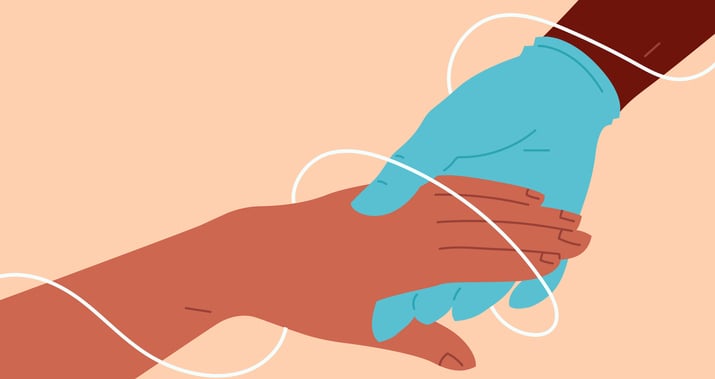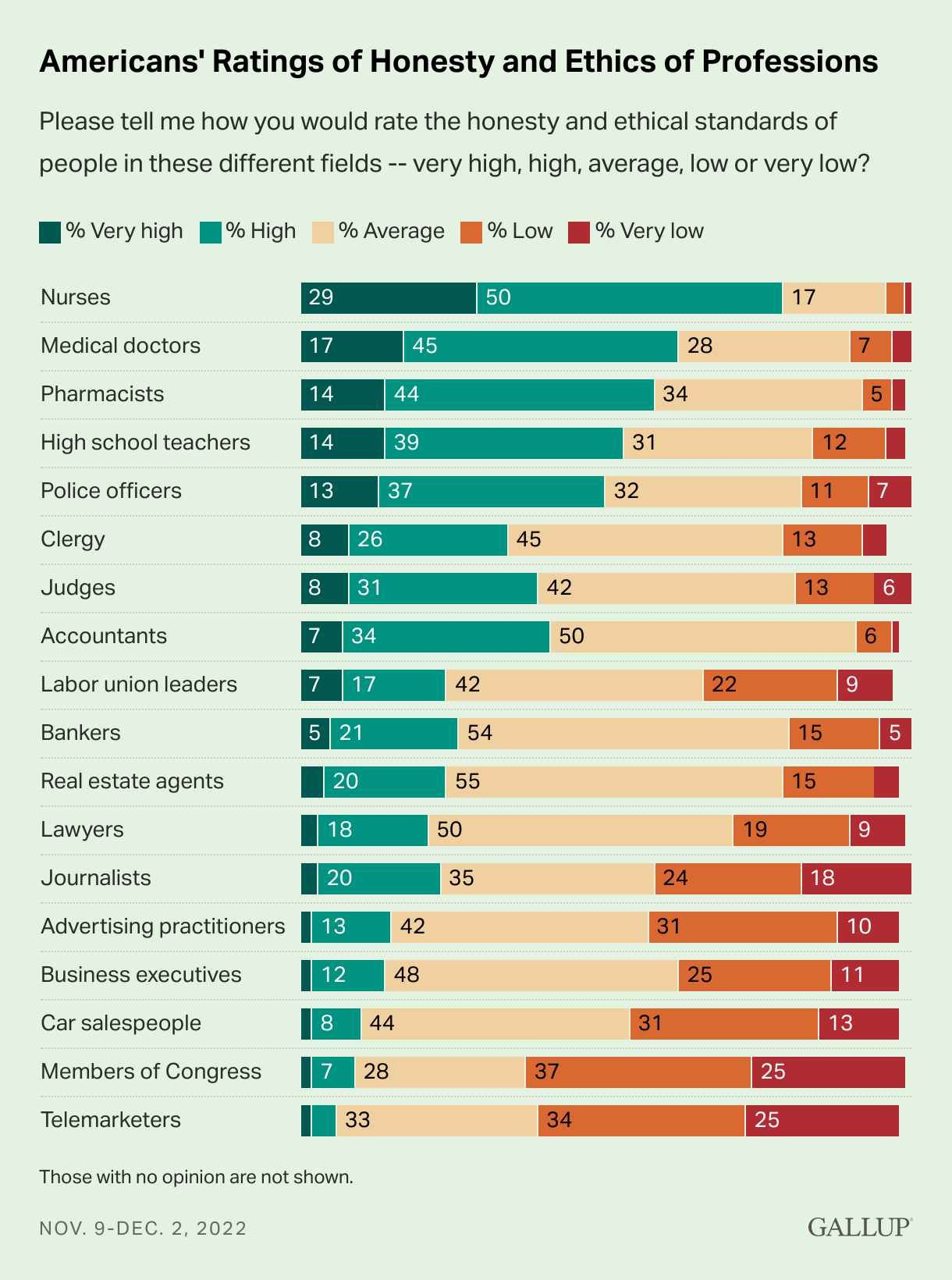 Whether you are considering a career in Nursing or are a Nurse looking to switch pathways, something to consider is salary. Many factors play into salary such as location, employer, and experience.
Whether you are considering a career in Nursing or are a Nurse looking to switch pathways, something to consider is salary. Many factors play into salary such as location, employer, and experience.
Here is a list of this year's highest paying Nursing positions.
1. Chief Nurse Anesthetist
Chief Nurse Anesthetists are responsible for supervising other Nurse Anesthetists and managing the day-to-day operations of the anesthesia department. They may also administer anesthesia to patients undergoing surgical procedures. They work closely with surgeons and other medical personnel to ensure patients receive high-quality care.
Average Annual Salary- $211,500
2. Certified Registered Nurse Anesthetist
A Nurse Anesthetist provides pain medication (anesthesia) care for patients before, during, and after surgery. They administer medications to keep patients asleep or pain-free during surgery and constantly monitor every biological function of the patient's body.
Average Annual Salary- $189,190
3. Dean of Nursing
The Dean of Nursing manages administrative functions of the College of Nursing, develops college strategic initiatives, and participates in university long-term planning and policy setting. As the Dean, you lead the college in fundraising, cultivate relationships with donors, as well as provide senior level administrative leadership in areas of curriculum development, institutional assessment and improvement, human resources, faculty development and performance appraisals, budget and finance, and facilities planning and management.
Average Annual Salary- $185,466
4. Chief Nursing Informatics Officer
A Chief Nursing Informatics Officer (CNIO) oversees the safe, secure implementation of technology in the workplace. They are familiar with current medical systems, and continually seek opportunities to organically integrate technology to a greater extent within these systems.
Average Annual Salary- $159,849
5. Chief Nursing Officer
On a day-to-day basis, the CNO of a healthcare organization is kept busy by a wide range of responsibilities. Between communicating with team members, implementing new protocols, and evaluating department performance, a CNO completes leadership tasks each day that allow the rest of the organization to function well.
Average Annual Salary- $146,250
6. Chief Nurse Practitioner
A Chief Nurse Practitioner is a Registered Nurse who has advanced training and experience in primary care. In addition to their clinical responsibilities, they play a role in leading and promoting best practices within their organizations. They are often involved in developing and implementing policies and procedures.
Average Annual Salary- $145,000
7. Travel Nurse
A travel Nurse is a Registered Nurse with a clinical background working in a non-permanent or temporary Nursing role. Travel nurses are typically employed by an independent Nursing staffing agency instead of a single facility.
Average Annual Salary- $118,270
8. Director of Nursing
A large health care facility will often have a Director of Nursing. The Director oversees all Nursing staff and performs both the duties of a Lead Nurse in a team and the administrative and leadership responsibilities of a manager. The Director of Nursing is a qualified Nurse who is often called upon to advise in difficult, sensitive or long-term care situations. In the role of manager or administrator, the Director of Nursing will communicate directly with the Physicians and other Directors in the department.
Average Annual Salary- $117,996
9. Certified Nurse Midwife
A Certified Nurse Midwife (CNM) is a primary health care provider to women of all ages throughout their lives. CNMs focus on gynecologic and family planning services, as well as preconception, pregnancy, childbirth, postpartum and newborn care. They also provide primary care such as conducting annual exams, writing prescriptions, and offering basic nutrition counseling.
Average Annual Salary- $117,552
10. Nurse Practitioner
Nurse Practitioners (NPs) are trained, licensed, and independent health care clinicians who concentrate on managing patients’ health conditions by treating injuries and illnesses, as well as supporting injury and disease prevention.
Average Annual Salary- $115,195
11. Pain Management Nurse
Pain Management Nurses are responsible for the care of patients with chronic or acute pain. Once they have assessed a patient’s pain, they work closely with Doctors and other Nurses to create a treatment plan. Pain Management Nurses administer medications and provide pain relief through other therapeutic methods. In addition, they teach patients and their families how to alleviate pain and make patients more comfortable.
Average Annual Salary- $114,450
12. Neuroscience Nurse
A Neuroscience Nurse treats patients with neurological injuries and disorders, including head and spinal trauma from accidents, or illnesses such as Parkinson’s disease, Alzheimer’s, epilepsy and multiple sclerosis. It’s important for these Nurses to have a firm understanding of how the nervous system works and how it can affect both the mind and the body.
Average Annual Salary- $109,930
13. Nurse Educator
Nurse Educators are responsible for teaching and instructing Nurses at colleges, universities, and in clinical settings like Doctors offices and hospitals. They have advanced Nursing degrees and understand the workload, policies, and requirements of nursing. Nurse Educators influence healthcare by training future Nurses who will play vital roles in healthcare facilities.
Average Annual Salary- $108,060
14. Respiratory Nurse
A Respiratory Nurse is a specialized Nursing professional that helps treat patients who are suffering from respiratory problems. As a respiratory Nurse, you will often care for patients who suffer from acute and chronic respiratory illnesses. Some examples may include bronchitis, pneumonia, asthma, emphysema, and lung cancer.
Average Annual Salary- $107,280
15. Cardiac Catheterization Laboratory Nurse
A Registered Nurse in the Cardiac Catheterization Laboratory (shortened as Cardiac Cath Lab) assists Cardiologists during the entire catheterization process. They prepare the patient before and after the procedure to stabilize their health status. The type of patients they’ll work with have heart diseases or ailments that require constant monitoring.
Average Annual Salary- $106,550
16. Clinical Nurse Specialist
Clinical Nurse Specialists are Advanced Practice Registered Nurses who hold a master’s or doctoral degree in a specialized area of Nursing practice. In addition to conventional Nursing responsibilities, which focus upon helping patients to prevent or resolve illness, a Clinical Nurse Specialist’s scope of practice includes diagnosing and treating diseases, injuries and/or disabilities within his/her field of expertise.
Average Annual Salary- $106,407
17. Surgical Nurse
Surgical Nurses are also known as Perioperative Nurses, and work in the OR and with surgery patients before, during, and after their surgery. There are many specific things that a Perioperative trained Registered Nurse will do to help Surgeons and Nurse Practitioners during surgery. They usually work directly with a Doctor on specific surgery patients to ensure everything goes smoothly.
Average Annual Salary- $104,370
18. Clinical Nurse Leader
The Clinical Nurse Leader (CNL) is responsible for evaluating patient outcomes, assessing risk across groups of patients, developing or revising care plans, and coordinating care among the multidisciplinary health care team. The CNL acts as a liaison between Nursing administration and the Staff Nurse, serving as an invaluable resource to that frontline care provider.
Average Annual Salary- $104,107
19. Labor And Delivery Nurse
From admission to discharge, Labor and Delivery (L&D) Nurses are there for every step of the birthing process and postpartum care. This means that L&D Nurses monitor vitals of both mother and baby; track and measure contractions; proactively assess and address mothers’ needs (e.g., pain medications or other support); assist with delivery and provide care.
Average Annual Salary- $104,000
20. Geriatric Nurse
Geriatric Nurses work with Doctors and other healthcare professionals to care for the physical, mental, and emotional well-being of elderly patients, helping them maintain independence and quality of life. These Registered Nurses (RNs) possess specialized knowledge and skills to treat common health issues affecting the elderly population.
Average Annual Salary- $103,800
Salary Source: Nursingprocess.org
 The Nursing profession would be nothing without the contribution of Certified Nursing Assistants (CNA). Certified Nursing Assistants play a vital role in healthcare by working directly under registered and licensed practical Nurses. CNAs assist patients with daily tasks like washing, dressing, and eating. The skills you learn as a CNA can be used throughout your Nursing career and will provide you with a solid foundation for building your knowledge. Here are some of the many reasons you should work as a CNA while in Nursing school.
The Nursing profession would be nothing without the contribution of Certified Nursing Assistants (CNA). Certified Nursing Assistants play a vital role in healthcare by working directly under registered and licensed practical Nurses. CNAs assist patients with daily tasks like washing, dressing, and eating. The skills you learn as a CNA can be used throughout your Nursing career and will provide you with a solid foundation for building your knowledge. Here are some of the many reasons you should work as a CNA while in Nursing school. 

 Whether you are considering a career in Nursing or are a Nurse looking to switch pathways, something to consider is salary. Many factors play into salary such as location, employer, and experience.
Whether you are considering a career in Nursing or are a Nurse looking to switch pathways, something to consider is salary. Many factors play into salary such as location, employer, and experience.  Nurse burnout is not a new concept. Nurses have been experiencing burnout for decades. However, since the COVID-19 pandemic, more Nurses than ever are experiencing burnout, making it a hot topic in the Nursing community. Nurse burnout is often brought on by everyday stressors like insufficient staffing, increased workload, high patient acuity, and even verbal or physical abuse from patients. These stressors result in physical, mental, and emotional fatigue. As a result, Nurse burnout has been a significant factor in the number of Nurses leaving bedside Nursing or even the profession altogether.
Nurse burnout is not a new concept. Nurses have been experiencing burnout for decades. However, since the COVID-19 pandemic, more Nurses than ever are experiencing burnout, making it a hot topic in the Nursing community. Nurse burnout is often brought on by everyday stressors like insufficient staffing, increased workload, high patient acuity, and even verbal or physical abuse from patients. These stressors result in physical, mental, and emotional fatigue. As a result, Nurse burnout has been a significant factor in the number of Nurses leaving bedside Nursing or even the profession altogether.  As a Nurse, you consider many factors when choosing where you want to work. Safety should be at the top of your list of considerations.
As a Nurse, you consider many factors when choosing where you want to work. Safety should be at the top of your list of considerations. The
The 
 Thinking about changing careers? At any stage in life, N
Thinking about changing careers? At any stage in life, N Healthcare workers, especially Nurses, face more challenges today than ever. Nurses must quickly adapt to fluctuating Nurse-Patient ratios, evolving technology, and the evolutions of healthcare and how it affects the way we provide care to our patients. Medication errors are an unfortunate consequence of overwork, distraction, and system errors. The consequences of medication errors can range from minor to serious. Serious medication errors can even result in death.
Healthcare workers, especially Nurses, face more challenges today than ever. Nurses must quickly adapt to fluctuating Nurse-Patient ratios, evolving technology, and the evolutions of healthcare and how it affects the way we provide care to our patients. Medication errors are an unfortunate consequence of overwork, distraction, and system errors. The consequences of medication errors can range from minor to serious. Serious medication errors can even result in death.  Photo:
Photo: 
